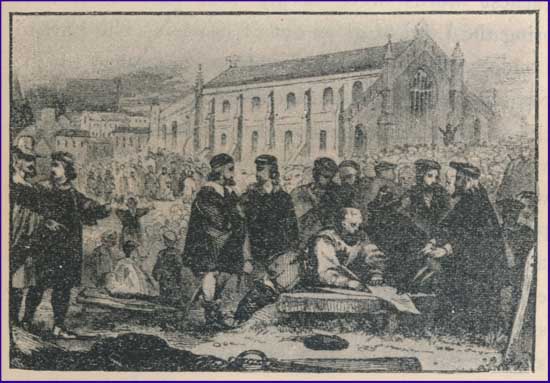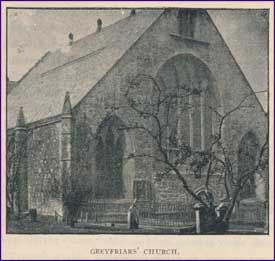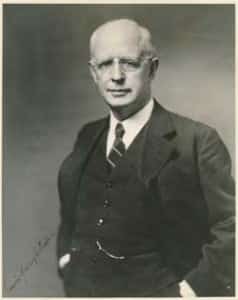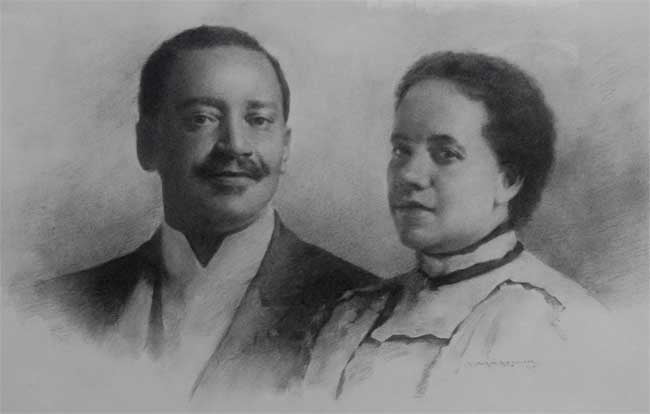Scotland’s Covenant with God.
The intense emotions of many Scot Presbyterians that day became irrepressible. Some wept aloud; some burst into a shout of exultation; some, after their names, added the words unto death; and some opening a vein, subscribed with their own warm blood.
Whatever was the Rev. W. M. Hetherington referring to in these stirring words, in his book “History of the Church of Scotland”? (see page 155). In one phrase, it was that of our title. Presbyterians of Scotland began the historic signing of the National Covenant with God at Greyfriars Church in Edinburgh on February 28, 1638.
 The spiritual situation in the kingdom of Scotland was dire. King Charles was determined to support the Church of England and ruin the Presbyterian faith in Scotland. At first, the Presbyterians of the realm thought that this was only the work of the prelates and not the king. But soon they came to the sad realization that this was led by the crown. And yet, they saw in his efforts the Lord’s judgments upon them as a people for having broken the covenants from prior ages. They thus determined to renew their covenantal obligations to Him and His holy law.
The spiritual situation in the kingdom of Scotland was dire. King Charles was determined to support the Church of England and ruin the Presbyterian faith in Scotland. At first, the Presbyterians of the realm thought that this was only the work of the prelates and not the king. But soon they came to the sad realization that this was led by the crown. And yet, they saw in his efforts the Lord’s judgments upon them as a people for having broken the covenants from prior ages. They thus determined to renew their covenantal obligations to Him and His holy law.
So appointing a fast for the nation at large, the faithful pastors of the Church addressed the people of the kirk by underscoring their sins of omission. They counseled the people of God with the need to renew their covenant to God. Qualified ministers were appointed to draw up the new national covenant. It consisted of three parts: the old Covenant of 1581 was repeated as still in force; the actions of the General Assembly of the Presbyterian Church of Scotland, and third, the application of the whole to the present circumstances of the church and nation.
 On of the morning of the twenty-eighth of February, the leading propositions of this covenant were presented to the Commissioners, who had gathered in Edinburgh. While opinions were freely exchanged and objections raised and answered, it soon became clear, by a rising tide of sacred emotion, that it was ready to be signed. So on the afternoon of that historic day, multitudes from every status of the church and nation gathered at Greyfriars Church.
On of the morning of the twenty-eighth of February, the leading propositions of this covenant were presented to the Commissioners, who had gathered in Edinburgh. While opinions were freely exchanged and objections raised and answered, it soon became clear, by a rising tide of sacred emotion, that it was ready to be signed. So on the afternoon of that historic day, multitudes from every status of the church and nation gathered at Greyfriars Church.
After prayer and explanation of the National Covenant, . . . well, let’s Hetherington describe the scene for us:
“A solemn stillness followed, deep, unbroken, sacred. Men felt the near presence of that dread Majesty to whom they were about to vow allegiance; and bowed their souls before Him, in the breathless awe of silent spiritual adoration.
“An aged nobleman, the venerable Earl of Sutherland, at last stepped slowly and reverentially forward, and with throbbing heart and trembling hand, subscribed Scotland’s Covenant with God. In that moment, all hesitation disappeared. Name followed named in swift succession, till all with the church had given their signatures. The document was then removed into the churchyard, and spread out on a level grave-stone, to obtain the subscription of the assembled multitude . . . As the space became filled, they wrote their names in a contracted form, limiting them at last to initial letters, til not a spot remained on which another letter could be inscribed.
” With low heart-wrung groans, and faces bathed in tears, they lifted up their right hands to heaven, avowing, by this sublime appeal, that they had now ‘joined themselves to the Lord in an everlasting COVENANT, that shall not be forgotten.'”
“If ye were not strangers here, the dogs of the world would not bark at you.”
Words to Live By:
If any would look with conviction at your Presbyterian local Church in our land today, and fail to see the need for a spiritual Holy Spirit produced revival in its under shepherds in the pulpit and people in the pews, then it may be that our hearts need first to have such a personal revival. The Psalmist prayed three thousand years ago in Psalm 85:6 “Will you not revive us again, that your people may rejoice in you?” (ESV) Rejoicing in God! Are you rejoicing in His Word, the Bible? His Day, the Lord’s Day? His laws, the Ten Commandments? In His works? In anything and everything associated with the God of the Scriptures? That is a Biblical revival! That is a revival sent by the Holy Spirit of God! Will you pray with the authors of This Day in Presbyterian History—that the Holy Spirit would begin a revival in our churches, and that by His mercy and grace, that the Holy Spirit would begin that revival in me?
Image source: Sketches of the Covenanters, by J. C. McFeeters, D.D. (1913), p. 93.
————————————
News Item from 2009:
Rare Copy of The National Covenant Sells For £32,137
[from www.lyonandturnbull.com/content/show_news.asp?id=102]:—
A rare copy of one of the most important documents in Scottish history sold for £32,137 at Lyon & Turnbull on the 10th June 2009.
The copy of The National Covenant dating from 1638 was valued between £5,000-8,000 and is signed by over 100 Covenanters including the Earls of Montrose, Cassillis, Eglinton, Wemyss, Rothes, Lindsay, Lothian and Lord Blamerno.
Simon Vickers, Head of the Book Department said “This is an incredibly good price for a copy of the National Covenant, we had a lot of interest in it with phone bidders from around the world.”
The Scottish National Covenant of 1638 was the result of various attempts by the Stuart monarchy to unify religious worship throughout England and Scotland. James VI & I had made a few cautious attempts to introduce a measure of Anglicanism into Scottish life, however it was his son, Charles I, that firmly believed the Kirk should be brought into line.
In 1637 King Charles I and Archbishop Laud endeavoured to impose an English liturgy, a move that the Scots saw as little less than an attempt to reintroduce popery. The spontaneous objection during that first service soon developed into organised opposition unified around the text of the National Covenant.
The 1638 document developed from the National Covenant of 1580, which denounced the Pope and the doctrines of the Roman Catholic church. The newly formed Covenant incorporated the Scottish Confession of Faith of 1581 and the Acts of the Scottish Parliament that had established the Calvinist religion and the liberty of the Kirk.
The original document was neatly written and signed by a large gathering on February 28th 1638 in Greyfriar’s Kirkyard, Edinburgh. The leading Covenanters – Rothes, Montrose, Eglinton, Cassillis, et al – then created duplicate copies to be dispatched “by the considerable persons themselves” into every shire, presbytery and parish of Scotland for signature. The copy on offer here is the Covenant of Renfrewshire.
The General Assemby of 1638 was composed of ardent Coventanters and in 1640 the Covenant was adopted by the Parliament and its subscription was required from all citizens. Over the next few years King Charles’ s attempts to deter his subjects by force were unsuccessful, leading to the eventual recalling of the English Parliament – an act that would begin the chain of events that led to the English Civil War.
The new owner (who resides in the USA and who wishes to remain anonymous) said “It is a hugely important historical document. I did my Phd in Church History at St Andrew’s University in Fife and will look forward to studying the Covenant in more detail. It will remain in Scotland for the time being in the care of my son who lives in the country.


